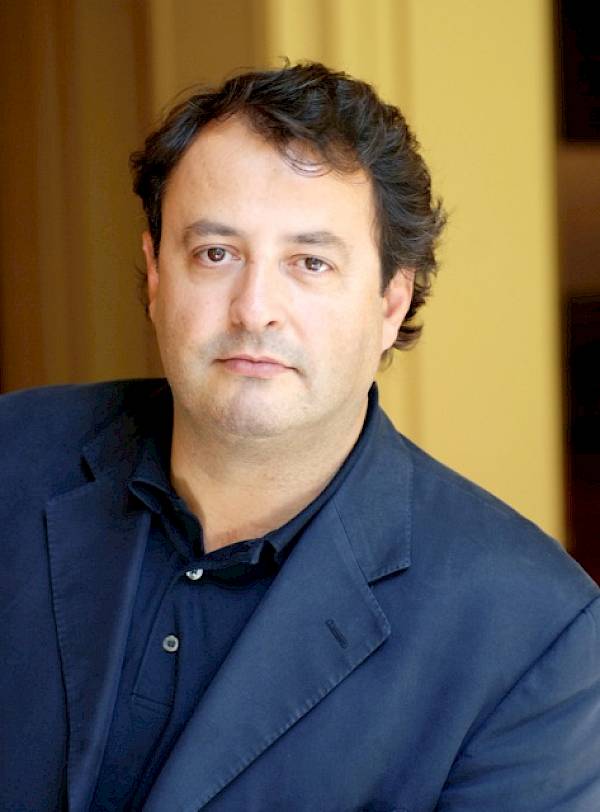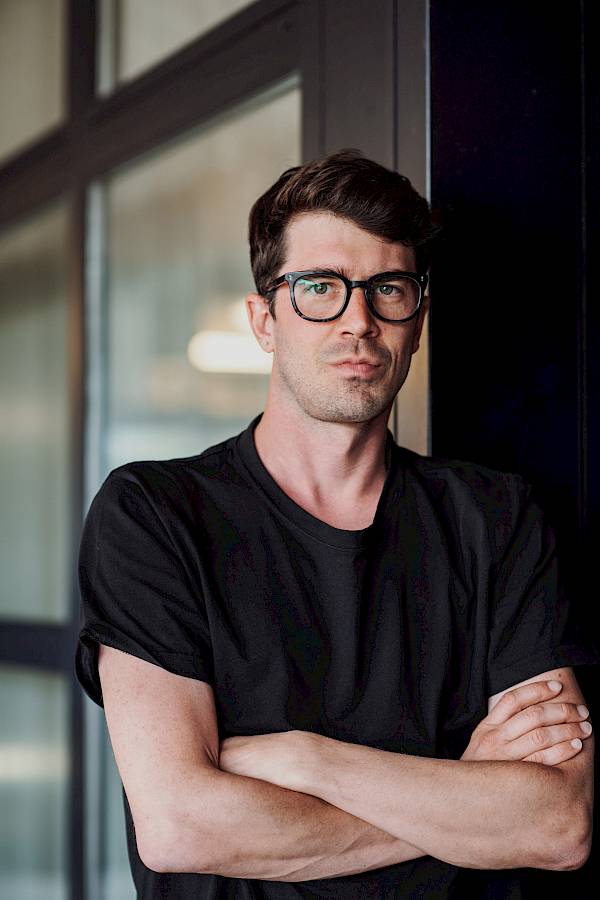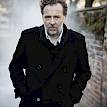Prologue
Paolo Albiani and Pietro secretly meet by night in the streets of Genoa. The two representatives of the people’s party are planning to have the political outsider Simon Boccanegra elected as Doge of the city – and to overthrow the hated government led by the nobleman Jacopo Fiesco.
Simon Boccanegra is not interested in the political office that Paolo proposes. However, privately hoping that he can win back his lover, Maria, whose father Fiesco is keeping her from him, he agrees. Paolo and Pietro convince the representatives of the people to elect Simon Boccanegra.
Jacopo Fiesco is lamenting the fate of his daughter Maria, who has just died in his palace. He is furious with Boccanegra, who seduced her. When the two men encounter one another, Boccanegra asks Fiesco to forgive him. Fiesco is willing to do so – if Boccanegra entrusts the child that he had with Maria to him. Boccanegra, however, is unable to fulfil Fiesco’s request: his daughter has disappeared under mysterious circumstances. The two men part without being reconciled.
Desirous of seeing Maria, Boccanegra enters Fiesco’s abandoned palace; the doors are open. He discovers the corpse of his beloved just as he is being proclaimed Doge in the city.
Act One
Simon Boccanegra has now been Doge of Genoa for 25 years.
Amelia Grimaldi is waiting for her lover, Gabriele Adorno. When he arrives, she takes him to task: by participating in a conspiracy against the Doge, he is recklessly putting himself in danger. Gabriele tries to placate her. When a visit from the Doge is unexpectedly announced, Amelia assumes that he is coming in order to woo her on behalf of his favourite, Paolo.
From Fiesco, who has been living unrecognised in Genoa as a monk under the name of Andrea ever since the death of his daughter, Gabriele learns that Amelia is not a true Grimaldi, but an orphan taken in by that eminent patrician family.
Amelia confesses her dislike of Paolo to the Doge, as the former is interested only in her wealth. She reveals the secret of her background: she grew up as an orphan in the care of an old woman on the coast. After the woman’s death, Amelia entered a convent in Pisa, which is how she joined the house of Grimaldi. Profoundly moved, Simon Boccanegra recognises in Amelia Grimaldi his long-lost daughter, whereupon he refuses Paolo her hand in marriage. Deeply aggrieved, Paolo decides to abduct Amelia.
In the Doge’s palace, Simon Boccanegra exhorts the Genoese to make peace with Venice. Paolo protests and calls for war. Outside, an angry crowd can be heard. Fleeing from the furious mob, Gabriele enters the palace and reports that Amelia has been abducted. He has killed her abductor who, as he lay dying, confessed that a powerful man was behind the deed, but did not reveal his name. Gabriele accuses the Doge himself of having been the instigator and threatens to kill him. Amelia, who in the meantime has been able to escape, intervenes and begs for mercy on his behalf. Simon Boccanegra has Gabriele arrested. Having deduced from Amelia’s account that Paolo is behind the abduction, he forces his old confidant to curse himself.
Act Two
Paolo thirsts for revenge. He sends for Gabriele and Fiesco, who has also been arrested, and attempts to persuade them to murder Boccanegra. To be quite sure, he also plans secretly to poison the Doge. Fiesco rejects Paolo’s murder plot; Gabriele, however, jealously agrees to it when he learns that Amelia is with the Doge. Paolo lets him into the Doge’s apartments.
When Amelia encounters her lover there, she attempts to placate his furious resentment. Since, for political reasons, she cannot yet explain her true relationship with Boccanegra, Gabriele – blind with jealousy – is determined to commit murder. When the Doge appears, Amelia manages to conceal her lover at the last moment.
In an intimate exchange, Amelia reveals the name of her lover to her father, and Boccanegra is horrified that, of all people, the man in question is his enemy, Gabriele Adorno. Moved by the sincerity of his daughter’s love, he promises her that he will look for a way to pardon him. Having asked her to leave him alone, he falls asleep.
Although he has decided to commit murder, Gabriele initially hesitates to kill the sleeping Doge. When he finally makes up his mind to do so, Amelia manages to intervene at the last moment and prevent the murder.
Boccanegra reveals to his enemy that he is Amelia’s father. Ashamed, Gabriele begs for his forgiveness. From outside, the of a growing rebellion can be heard, but Gabriele opts to fight for peace at Boccanegra’s side. Simon promises him his daughter’s hand.
Act Three
The revolt against the Doge has collapsed. As Paolo is being led to execution for treason, he encounters Fiesco, who has been released. He confesses that he has poisoned the Doge.
Fiesco waylays the Doge, who is already weakened, revealing himself as his old enemy. However, Simon expresses his joy at being able to reunite Amelia, his granddaughter, whom he had believed dead, with the father of his deceased lover after 25 years. Horrified, Fiesco discloses to Boccanegra that Paolo has poisoned him.
Just married, Amelia and Gabriele encounter the reconciled enemies and learn that Boccanegra’s death is imminent. Just before he dies, Boccanegra declares Gabriele Adorno as the new Doge and blesses the latter’s union with his daughter Maria.






































